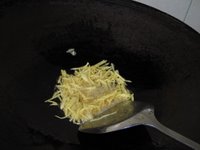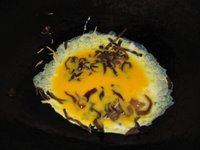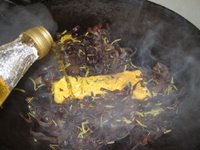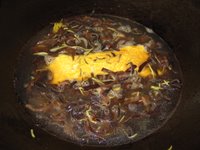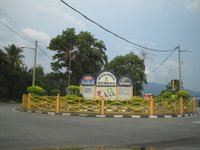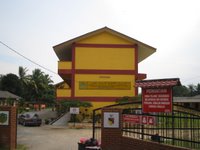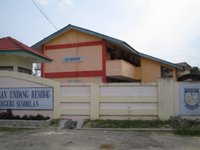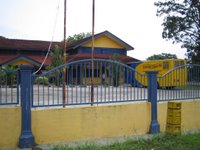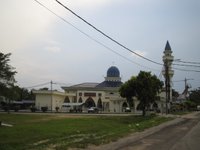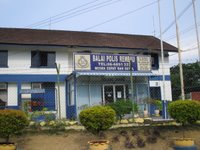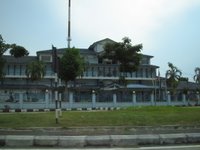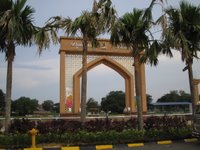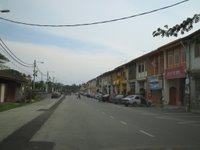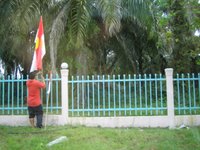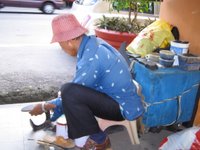I attended the second AGM of
icapital.biz Berhad at the Eastin Hotel, Petaling Jaya yesterday morning. Actually, I don't normally go to AGMs of public listed companies but on this occasion, I went there to hear what Mr Tan Teng Boo has to say, the designated person of
icapital.biz Berhad who was scheduled to give a short presentation at the end of the AGM.
It was an interesting morning, more so because the attendance was pretty impressive considering no meals (not even coffee & tea) were served and no door gifts were promised. All the seats in the hall were almost fully taken up and the Q&A sessions were quite lively. Mr Tan made a remark which sums up what he thought of our local stock market ie the Bursa Malaysia: the current joke among investors is that the Bursa is neither dead nor alive. He also likened it to a glass half full, or even half empty - you may call it whatever you wish. But the fact remains that the neither here nor there situation is not helping our country in realizing its economic potential, which is a shame.
I won't go into details of what I heard and saw at the AGM, and please, do not pose questions to me on this as well. I normally don't retain such information very well simply because I'm not interested in talking about such stuff. Boring after all is said and done.
But, I want to share with you an interesting write-up which was included in the stack of documents I received at the door. It was a 3-page copy extracted from their newsletter
ICapital@Vol.16 No. 11. 28/10/2004 titled "MALAYSIA'S VISIONARY". (Oh, I hope they won't threaten me with violating their copyright by posting it here.) Here are the interesting parts:-
********************
MALAYSIA'S VISIONARYMalaysia's modern history is short, not surprising given her young age. However, even with such a short history, a lot of key facts are already forgotten or conveniently swept under the badly maintained Malaysian carpet.
One can ask, does this matter? How is it related to investing and the stock market?
iCapital has always advised that besides knowing accounting and economics, an investor needs to know history and philosophy well. This week, we take a walk down memory lane.
This week,
iCapital will share with its subscribers some interesting but forgotten or unknown facts about the Malaysian Prime Minister who is or was the most visionary of all.
Most subscribers, especially the younger ones, would give the wrong answer and still not know that it is the wrong answer. As a socially responsible investment adviser,
iCapital is duty bound to give its independent views on the matter and help set the record straight.
The most visionary Prime Minister of Malaysia is none other than Tunku Abdul Rahman, our first Prime Minister who led the country from 1957 to 1970, when he was politically forced to step down.
Articles and history books will tell you that he is known as the father of independence. There is no dispute about this. Based on this factor alone, Tunku Abdul Rahman (TAR) should already be named as the most visionary Prime Minister. But there are more than this to justify him winning the title of the most visionary Malaysian Prime Minister.
...
(Tunku Abdul Rahman) was apparently forced out for giving too much to the non-Malays and neglecting the socio-economic interests of the Malays.
Yet at the same time, the non-Malays were dissatisfied with the government policies and attitude towards them under TAR. This is usually what happens when a leader is a visionary and the voters cannot see that far or beyond their own narrow self-interests. TAR was blamed for having economic policies that were too free market-oriented or too laissez-faire.
Again the facts pointed the other way. Let us look at some of them.
[Fact 1]
The Federal Land Development Authority (FELDA), probably one of the most successful agricultural development schemes the world has seen, was created in 1956 (how many Malaysians know this?). In 1960, 10,500 acres of land were opened up by FELDA. By 1970, 308,400 acres were opened up and 20,700 families were settled on 90 schemes. One community has benefitted greatly from this scheme.
[Fact 2]
The Federal Agricultural Marketing Agency (FAMA) was set in 1965. This body were set up to improve the marketing system and ensure that farmers obtain fair prices for their products.
[Fact 3]
Bank Pertanian Malaysia was setup in 1969. It was set up to provide credit facilities to farmers on reasonable terms.
[Fact 4]
MARDI or the Malaysian Agricultural Research and Development Institute was set up in 1968. It was to facilitate research into the potential of various agricultural crops.
[Fact 5]
Bank Bumiputra was set up as a commercial bank in 1965. Its focus was to provide credit and banking facilities to Malays and the other indigenous people in commerce, industry and other economic activities.
[Fact 6]
Majlis Amanah Rakyat (MARA) was set up in 1966.
[Fact 7]
Universiti Teknologi Mara started off in 1956 as a rural training centre. It was renamed Mara College in 1965 with the mission of providing professional training for bumiputras. In 1967, it was renamed Mara Institute of Technology.
All the above institutions are still around and were set up during Tunku Abdul Rahman's time.
Although the list is not exhaustive, it is obvious that TAR was dead serious about vastly improving the socio-economic conditions of the Malays and he had the vision to launch the relevant institutions to achieve them.
Four decades later, others are taking the credit for promoting the interests of the Malays.
But the greatness of TAR's vision was not confined to only this. For the Malaysian economy, it was already on the path of diversification and broadening the economic base.
The dependence on rubber and tin was reduced quickly. Within 6 years, their share of total exports dropped from 62.2% in 1965 to 53.8% in 1970.
Unknown to many Malaysians, the palm oil industry was already expanding rapidly in the Sixties. The area under palm oil surged from 132,000 acres in 1960 to 665,000 acres in 1980. Growth in timber production and exports during the Sixties exceeded all expectations. Production of plywood and crude petroleum also surged.
...
Industrialisation was also already beginning. Manufacturing output from 1961-65 grew 9.9% p.a. and from 1966-70, it expanded 10.4% p.a. The share of manufacturing in the GDP jumped from 8.5% in 1960 to 13% by 1970. ...
But the vision of Tunku Abdul Rahman was not confined to just economics.
He had great foresight, for example, to continue whatever good the British colonial master had built up for Malaysia. TAR did not destroy or change something just for the sake of change or blind nationalism like meaningless acts of changing the names of roads.
Petaling Jaya, the modern thriving suburb of Kuala Lumpur, was already being built in the Fifties but its development accelerated in the Sixties.
The Rubber Research Institute (RRI) continued to be managed professionally and remained the world's leading rubber research institute then.
The judiciary was very highly respected, both at home and abroad and TAR wisely did not interfere. The rule of law was never in question. Malaysians could even make their legal appeals to the courts in England.
Bahasa Malaysia was made the official language but English continued to be widely practised at standards that Malaysians may never ever be able to regain. Government schools were the natural choice of young Malaysians and were not deserted by the various races because these schools were respected and trusted by all Malaysians.
Tunku Abdul Rahman had the great wisdom and vision of being able to identify what is good for the future of Malaysia. He was smart enough to build upon the excellent institutions that the British had left behind and implement policies that were really forward looking. Looking back with hindsight, his policies were ahead of his times.
In the Sixties, Malaysians were not complacent.
They were living in a performance-based system where meritocracy was recognised and encouraged. The University of Malaya very quickly became a highly respected university in the entire Commonwealth.
Our badminton team conquered the world. Our athletes were Asian champions. Religion was not politicised. The Malaysian society was much, much more liberal than what it is today.
Despite the May 1969 racial tension, the different races were ACTUALLY able to mix very freely and easily. Politics were politics; business was business. Unlike nowadays, the Anti-Corruption Agency of Malaysia began its formal operations on 1st Oct 1967.
Led by Tunku Abdul Rahman, Tun Tan Siew Sin and Tun Sambanthan, the Malaysian government in the Sixties was not perceived as being plagued by rampant corruption, again unlike nowadays.
By any standards, the above achievements were world-class and made Malaysians proud. TAR was recognised and treated as a global statesman. He was made the first secretary-general of the 57-nation OIC or the Organisation of Islamic Conference.
When these achievements are remembered in the context of the milieu existing then, they become even more significant and one would truly realise that TAR was the real visionary. As a young nation, Malaysia had to face huge challenges.
The communist insurgency had just ended in 1960. There was the debilitating military confrontation launched by Indonesia. Singapore had to split. The British was withdrawing their military presence east of Suez. There were global currency and financial crises. The Sixties was the height of the Cold War between the US and the USSR. The Vietnam War was escalating and there were fears that the rest of Southeast Asia was going communist too. Locally, despite the sustained economic growth, unemployment remained a serious problem. The unemployment rate worsened from 6% in 1962 to 6.6% in 1967. This was partly due to rapid population growth and the very difficult environment that young Malaysia was experiencing then.
After he was forced to retire, Malaysia was never the same again and has been sinking ever since.
The standard of English declined and is still declining. The education system became politicised and the quality suffered severely, probably beyond repair.
Malaysian sports became politicised too and consequently Malaysians disappeared from the badminton rostrums. Under the 22 years of the 4th Prime Minister, the rule of law was forgotten and corruption at all levels became rampant. Business, politics and corruption became inseparable under the guise of Malaysia Inc.
The judiciary became a source of embarassment instead of pride. Religious fundamentalism became very intertwined with politics and this destroyed the entire landscape of an open Malaysian society. Different races go to different schools and Malaysians of all races face more barriers at interacting thn during TAR's times. Meritocracy and a performance-based system were replaced by complacency and a get rich quick mentality that cuts across all communities. Now, we cannot find the equivalent of a RRI. A generally market-based economy was mistakenly replaced by state capitalism and as a result, the Malaysian economy is now stuck with its worst features.
In summary, what was visionary about Tunku Abdul Rahman?
First, let us sum up his policies and philosophy. In terms of economics, he was very wisely adopting a balanced economic development approach, unlike the 4th Prime Minister.
Developing agriculture went hand in hand with industrialisation. The core sectors of rubber and tin were strengthened with new sources of growth being aggressively developed at the same time. TAR's economic policies were more market based or laissez-faire than his successors. Meritocracy and performance were kept as important criteria across the nation - be it in sports, economics, education, etc.
Tunku Abdul Rahman knew the importance of English. His political philosophy encouraged an open and tolerant Malaysian society. The tragedy for Malaysia was the failure of the ruling party to see the vision and the wisdom of TAR's multi-facet policies. Had they continued with his policies, Malaysia would have succeeded far beyond what she has achieved so far.
...
To our Malaysian subscribers of all races, make sure you all know the facts and whom you are calling as the most visionary Malaysian Prime Minister.
But more important than this was the cruel and tragic fact that Tunku Abdul Rahman was forced out by short sighted, impatient senior politicians in the ruling party.
Imagine if we had continued with his farsighted policies. The success of the Malaysian economy would be similar to Singapore and we would have even surpassed South Korea or Taiwan by now. The KLSE would be trading at 3-4,000 points now instead of a miserable 850.
As Abdullah Badawi gets ready for his second year, it is time for UMNO, MCA, MIC, the Malay, The Chinese, the Indian and the other communities to redefine what is visionary.
We all "killed" Malaysia's most visionary Prime Minister. Let us now be truly visionary and ensure that the future of Malaysia does not belong to the greedy and the short sighted ...
Capital Dynamics Sdn Bhd Tel: 03-20702104/05 website: www.icapital.biz
********************
p.s.: I hope you enjoyed reading the above, because I spent a LONGGGGG time typing it out!!!
Labels: BN politics



